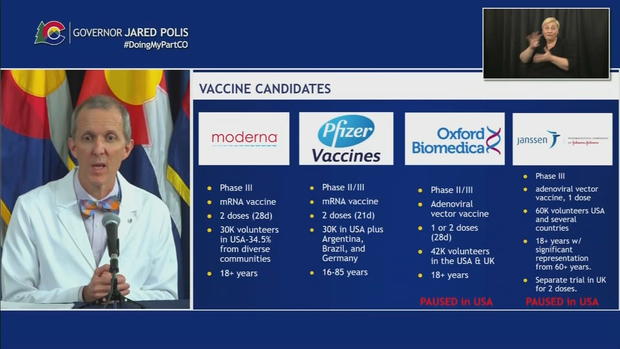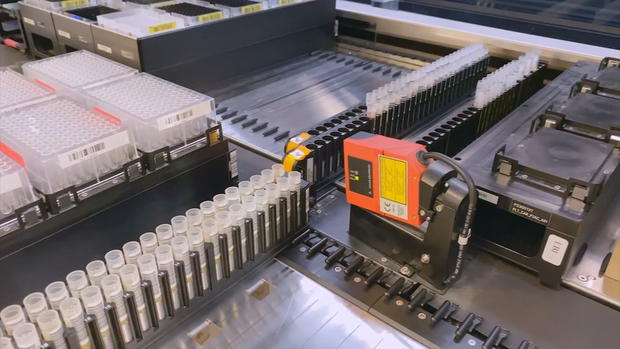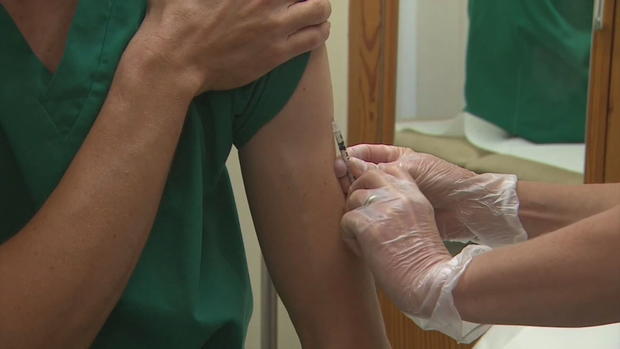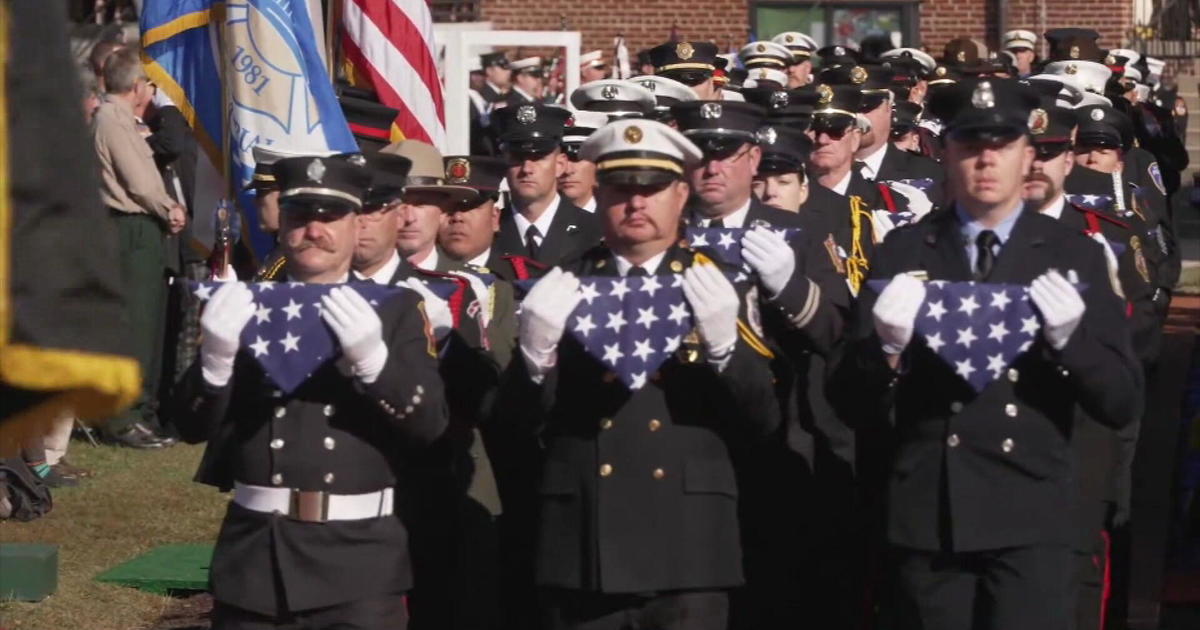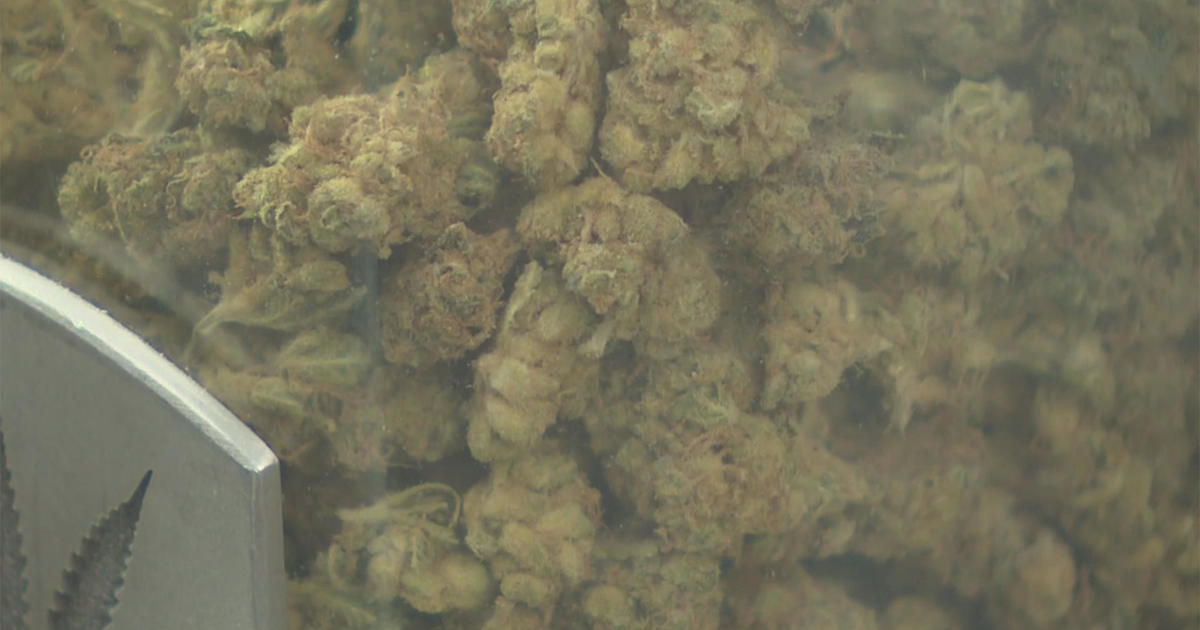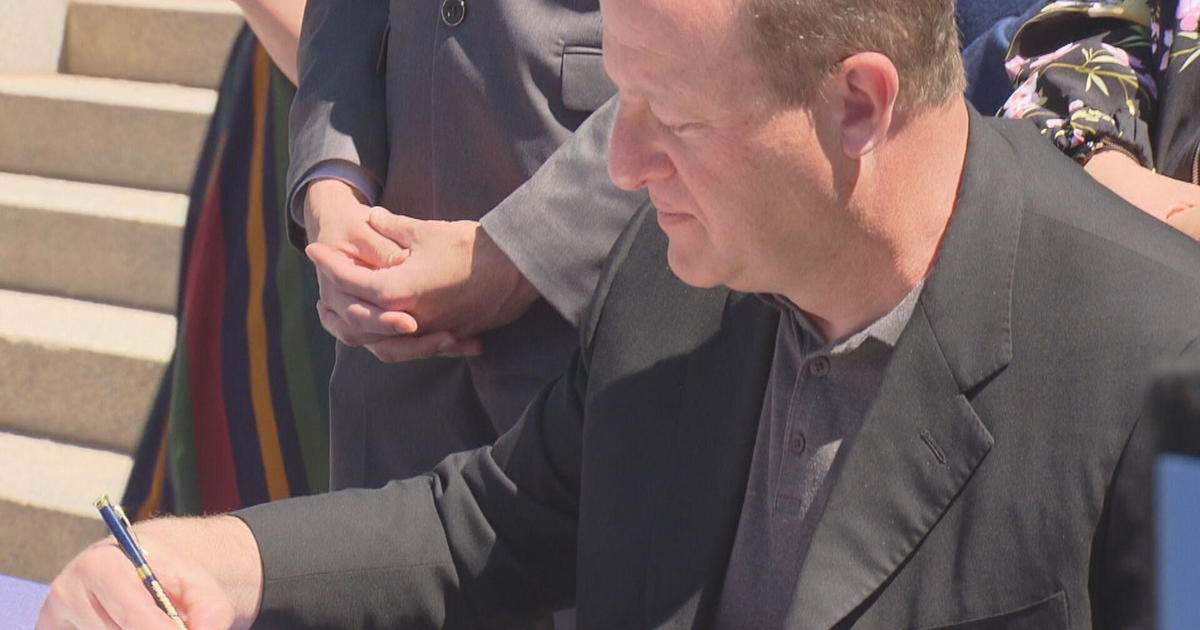When A Coronavirus Vaccine Is Available, Colorado Plans To Distribute In 3 Phases
DENVER (CBS4) - Gov. Jared Polis and state health officials outlined their distribution plan for a COVID-19 vaccine on Friday, explaining that whenever doses become available, there will not be enough for the state. The Colorado plan releases doses in three phases prioritizing those most in need and most likely to be exposed to the coronavirus.
"It's important that we build this vaccine that we do it in a way that assures that it works, and that it's safe," said Dr. Eric France, the chief medical officer for the Colorado Department of Public Health and Environment.
France and other leaders from CDPHE explained the advancements in medicine and science helping to speed up the development of a vaccine. But they also warned about the uncertainty around current trials and the ability to produce enough of the vaccine. They also said that the period to reach immunity for those taking the vaccine will require time, all reasons to continue the use of face masks and social distancing.
"I think it has gone really well, there's been tremendous support for this vaccine trial both by the community as well as our institutions, UCHealth and the CU Anschutz Medical Campus," said Dr. Thomas Campbell UCHealth Chief Clinical Officer and a professor of infectious disease at the University of Colorado School of Medicine. "Because of the broad support we've received, we've been able to enroll not only a large number but diversity in our participants to try to represent the communities that COVID-19 affects in Colorado."
The vaccine trial administered by Moderna will complete enrollment next Friday, patients will be monitored and studied for two years. Dr. Campbell says he cannot say when a vaccine will be ready, there is an independent monitoring committee that will determine if it is safe and effective. The other trial UCHealth is participating in with AstraZeneca has been on hold for several weeks. While these delays are not expected, they demonstrate the trials are monitored for any concerns of safety.
"We have first prioritized populations most at risk for catching COVID-19, such as healthcare workers, first responders and residents of long-term care facilities and nursing homes," said Jill Hunsaker Ryan, CDPHE executive director.
After the first dose limited to healthcare and critical workers and those at the highest risk, the second phase would include essential workers and those with a higher risk. The final phase will include the general public. Distribution will also move in phases from hospitals and nursing homes to public health clinics and then a part of routine vaccinations in the third phase. The plan is based on months of work and can be modified beyond Friday, when it was submitted to the CDC.
Polis acknowledged that there could be one vaccine trial approved for emergency use by late November but well before that, the number of cases and hospitalizations are too high in Colorado. The most since May in both categories, Polis said that one in 260 Coloradans are contagious with COVID-19 given the current positivity rate above five percent and total cases. He said large gatherings of 30 to 40 people need to stop, you have a 50% chance of getting coronavirus.
"It's a marathon. It might be at mile 15 and yes, then the last nine might be the hardest," Polis said. "We need to pace ourselves to get this done."
The governor also reminded the public to prepare for multiple doses and the prolonged period before immunity would begin if someone needs to take two shots of the vaccine 30 days apart.
"Distribution of a vaccine is certainly not something that is on the forefront of my mind but I'm very glad that it is on the forefront on the minds of others because it is a very important thing to start planning," Campbell told CBS4 on a video conference call. "It's very important to know that the vaccine will be distributed to the people who are most at risk and most affected by COVID-19 illness."
His focus is on monitoring the enrollment of patients in the trials and their infection cases as well as side effects from the vaccine. He believes the quick enrollment will help them finish their study quicker, requiring two years in total. While he thinks the goal of a vaccine at the end of the year or in early 2021 is possible, he said rigorous data is needed to determine the safety and efficacy.
"Some people have expressed concern that the process has been too rushed and so it's important that we as the scientific and medical community make sure that we take all the steps to be able to know for sure that when we endorse a vaccine that it is indeed safe and effective," he said.
Ryan explained that Colorado has experience with vaccine distribution in 2009 for H1N1, where 1.6 million doses were administered by 1,500 providers. They also increased the vaccination rate for measles, mumps, and rubella from 87.4% to 91%. So far this year, the vaccination rate for the flu is up 72% from last year. She also said if they had to prioritize within the first phase of healthcare workers and first responders, they would look at those with comorbidities.
"This has been an important time, an amazing time for vaccine science," Dr. France said. "Over the last 10 years these new technologies of using direct genetic materials has led to an ability to quickly produce a vaccine."
